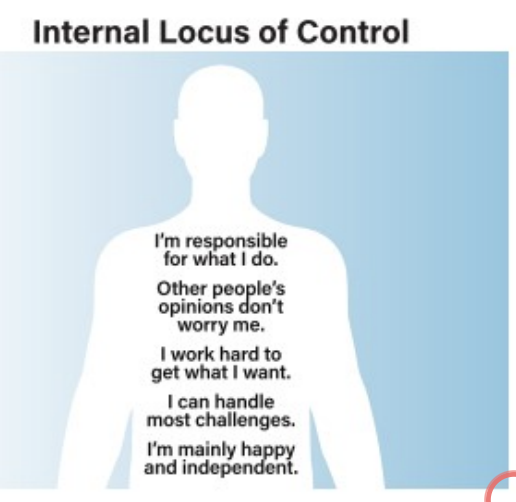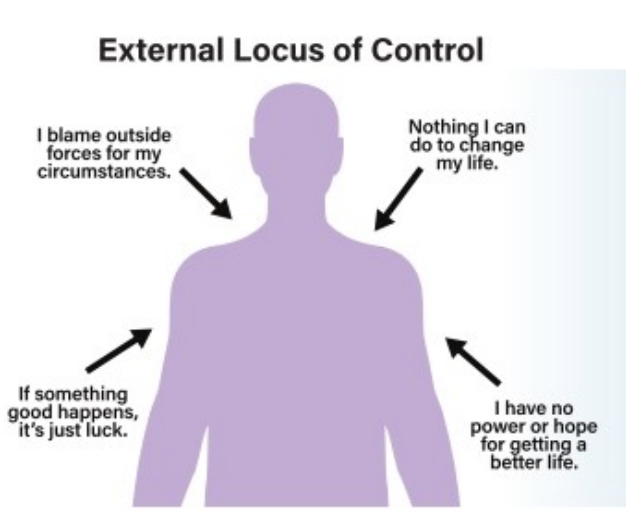4.1 - Attribution theory, Locus of Control, and Person Perception
1/25
There's no tags or description
Looks like no tags are added yet.
Name | Mastery | Learn | Test | Matching | Spaced | Call with Kai |
|---|
No analytics yet
Send a link to your students to track their progress
26 Terms
Social Psychology
using scientific approach to understand how and why social groups influence individual behavior and attitudes.
Personality
explores the diverse characteristics that make people unique
Motivation
Internal and external factors that shape personality
Emotions
investigates how feelings are experienced, regulated, and expressed
Attribution
the way in which we explain the cause or causes of behavior
Dispositional Attribution
assumption that behavior is driven by internal characteristics such as intelligence or personailty
Situational Attribution
explaining the behavior as a result of an external source (a person’s situation)
Explanatory Style
predictable way of explaining the causes of events to themselves
Optimistic Explanatory Style
negative events = external and specific causes | positive events = internal and global causes.
Pessimistic Explanatory Style
negative events = internal and global causes | positive events = external and specific causes
Global Explanatory Style
tendency to view single setback as a sign of larger, more widespread problems
Specific Explanatory Style
tendency that negative events come from specific factors in a given situation, not as a reflection of their overall self or abilities.
Actor-Observer Bias
attributing others behavior to internal causes, while attributing own behavior to external causes.
Fundamental Attribution Error
tend to attribute own actions to external factors, but often blame others actions on their personal qualities.
Self-Serving Biases
tendency to attribute success to our own abilites, and failures to external factors
Ultimate Attribution Error
the tendency to attribute positive behaviors of one's own group (ingroup) to internal factors like personality, while attributing negative behaviors of an outside group (outgroup) to internal factors
Locus of Control
perception of where control over life events resides
Internal Locus of Control
belief that people have the ability to control their lives, their choices, and the world (positive)

External Locus of Control
believe that they have little to no control over their lives

Person Perception
our brain’s ability to form impressions and make judgement about others
Mere-Exposure Effect
your preference for something increases the more you are exposed to it
Self-Fulfilling Prophecy
when a person unknowingly causes a prediction to come true, due to the simple fact that he or she expects it to come true
Social Comparison
comparing your own skills to others and feeling you are not as skilled
Upward Social Comparison
comparing oneself to others who are perceived superior
Downward Social Comparison
comparing oneself to other who are perceived inferior
Relative Deprivation
feeling of dissatisfaction that arise when people perceive themselves as having less than they deserve compared to others.